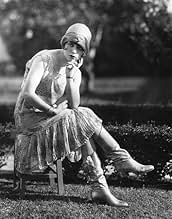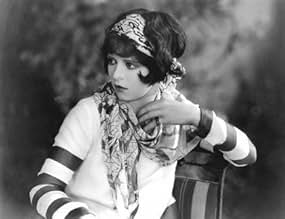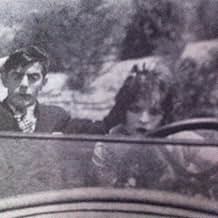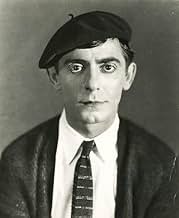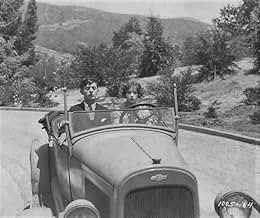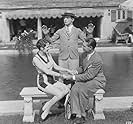Adicionar um enredo no seu idiomaA salesman is helped out of a jam with an angry customer by a wealthy playboy. In return, he agrees to help the playboy get a divorce from his wife, only to find himself falling for the girl... Ler tudoA salesman is helped out of a jam with an angry customer by a wealthy playboy. In return, he agrees to help the playboy get a divorce from his wife, only to find himself falling for the girlfriend of the customer who got him in trouble in the first place.A salesman is helped out of a jam with an angry customer by a wealthy playboy. In return, he agrees to help the playboy get a divorce from his wife, only to find himself falling for the girlfriend of the customer who got him in trouble in the first place.
- Direção
- Roteiristas
- Artistas
- Prêmios
- 2 vitórias no total
- Eleanor's Lawyer
- (as Harry Van Meter)
- Unknown Role
- (não creditado)
- Tailor
- (não creditado)
- Physical Therapist
- (não creditado)
Avaliações em destaque
Many really funny sequences.
Cantor, born and raised in New York City, dove into the entertainment business early on, displaying a knack of singing and slinging jokes in saloons, where a young Jimmy Durante played piano for his act. He graduated to vaudeville before producer Florenz Ziegfeld slotted him into his 'Ziegfeld Follies of 1917.' Working alongside Will Rogers, Fanny Brice and W. C. Fields, Cantor proved his worth with his melodic voice and his sense of self-deprecating humor. When on tour, he briefly dated future 'Valley of the Dolls' author Jacqueline Susann.
His prominence in the 1923 play 'Kid Boots' showcased his talents even more. Inventor Lee De Forest hired Cantor to appear in one of his first sound movie recordings to demonstrate his recent invention Phonofilm. Eddie sings two songs from the play 'Kid Boots.' De Forest's "A Few Moments with Eddie Cantor" was the innovator's biggest name star for his series showing how the first sound impulses imbedded on a celluloid strip could play in perfect sync with the picture.
The play also had a profound influence on Frances Rose Shore. As an aspiring singer, she sang one of the play's most popular songs, "Dinah," during several radio auditions. When she was being introduced by a famous New York City radio disc jockey, he had trouble remembering her name but knew she was going to sing her signature song. So he quickly called her the 'Dinah girl.' She loved the name so much she adopted it to ever be known as Dinah Shore.
Eddie Cantor used the movie "Kid Boots" as a springboard to introduce himself to a variety of media, including radio and television. In the following year he was offered the lead in Warner Brothers' 1927 "The Jazz Singer." But along with George Jessel he turned down the part, missing out on one of the biggest historical turning-points in cinematic history.
At the resort Tom meets a girl that he falls for, and Kid Boots runs into Clara McCoy again, still accompanied by her brutish boyfriend. Clara prefers Kid Boots because she "prefers reliable men to good-looking ones" a title card tells us. At the resort Tom's ex-wife and her lawyers soon follow, along with all of the comic routines and mix-ups that you're accustomed to seeing in Cantor's sound films, if you've been fortunate enough to view those rarely seen comic gems. The film is quite good and it didn't surprise me that it was a Paramount silent that someone else had restored and presented.
At the club, Cantor goes crazy for Ms. Bow while Gray romances beautiful Billie Dove (as Eleanor Belmore), the boss' daughter. Meanwhile, Gray's leggy wife Natalie Kingston (as Carmen Mendoza) checks into the room next to her husband, to cause trouble. She proceeds to "vamp" Cantor aside, in order to spend the night alone with Gray; if she is able to do this, their divorce won't become final, and she can partake of his inherited millions. Cantor must save Gray and win Bow.
This was a successful film debut for stage star Cantor, who might have joined Chaplin, Keaton, and Lloyd if this had been released a decade earlier. As a film, "Kid Boots" may not equal the best of those other comedians' works, but you can see Cantor had the silent stuff. Most impressive is the film's exciting end, which features a very impressive cliff-hanging sequence. This is pure cinema, but Cantor includes great stage bits, too. How he makes Bow jealous, and scenes with Mr. Waite are highlights.
******** Kid Boots (10/4/26) Frank Tuttle ~ Eddie Cantor, Clara Bow, Malcolm Waite, Lawrence Gray
Você sabia?
- CuriosidadesWhen Kid Boots debuted at a New York City movie theater in October of 1926, many officers from the New York Police Department were sent there for crowd control, due to the increasing popularity of Clara Bow, as well as the great reviews of the film by critics.
- Citações
Title Card: For Kid Boots, the painful path of duty him to--his pal's bedroom.
Principais escolhas
Detalhes
Bilheteria
- Faturamento bruto nos EUA e Canadá
- US$ 314.332
- Tempo de duração
- 1 h 17 min(77 min)
- Mixagem de som
- Proporção
- 1.33 : 1

